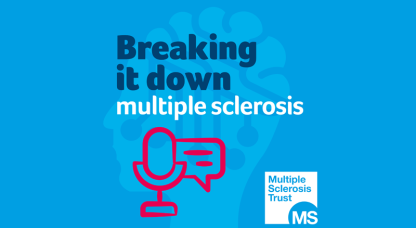MS Trust research has shown that 64% of people living with MS in the UK – around 68,000 people – live in areas where there aren’t enough MS nurses to provide vital care and support. Without this specialist care people with MS can feel left to deal with an unpredictable and sometimes devastating disease by themselves. This is why the MS Trust has launched a campaign to fund new nurses and to make sure no one has to take on MS alone.
The programme will see the MS Trust help to recruit and fund new MS specialist nurses, work with local MS teams to help them make the most of the new nurses and demonstrate the difference they make to local people living with MS. After 15 months, the respective NHS trusts will take over funding for the posts, but the MS Trust will continue to support the nurses’ training and development, as it does for all MS nurses in the UK.
Recruitment for two new nurses at University Hospitals of Leicester NHS Trust and at Bradford Teaching Hospitals is now well underway, and it is hoped that new nurses will be in post by the end of summer 2017. The MS Trust is now working with a range of additional sites across the UK that its research has identified as being in particular need of new nurses, and hopes to name further new posts later in 2017.
“At the MS Trust we believe that MS nurses play a vital role in helping people deal with the shock of diagnosis and can help them adjust to, and manage, life with MS,” said Pam Macfarlane, Chief Executive of the MS Trust. “Our research shows that too many people are going without this specialist support – either they have no MS nurse near them, or their nurse is having to manage a caseload far in excess of the recommended sustainable number. This can have grave consequences for people with MS. They may have to rely on non-specialist support for what is a highly complex disease. And they may have to resort to using A&E services if their symptoms become worse.”
“As we know, the NHS is coming under increasing strain, and MS specialist services are often not a priority. That’s why the MS Trust is stepping in to take action. We have mapped services across the UK and highlighted the areas in greatest need. Now we are determined to fund, train and support new MS nurses to make a difference for thousands of people living with MS today.”
MS Trust research has shown that MS nurses provide vital support for people with MS. They often work with people from the moment of diagnosis, throughout their lives with MS, providing expert information and support in decision making (for example around disease modifying drugs). They help people proactively manage their MS symptoms but also respond to acute deteriorations and relapses. Their support can help prevent secondary complications which can be disabling or life threatening and result in unscheduled care, such as A&E attendances, hospital admissions or out of hours GP calls.


